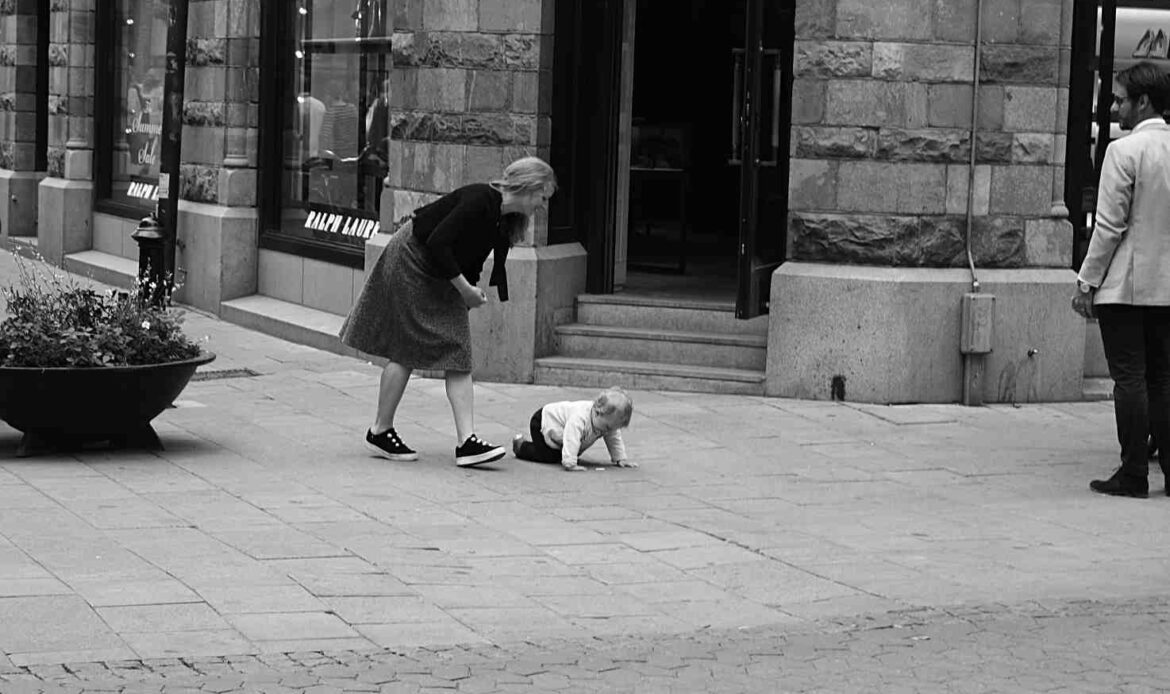Ah, “tough love.” That phrase we throw around when we’re trying to justify saying something hard, setting a firm boundary, or walking away from someone we care about. And sure, it can have a place in healthy relationships… but let’s be honest: sometimes “tough love” feels less like love and more like… well, abandonment in a clever disguise.
So what does it actually mean? And does it even work the way we think it does?
What does tough love mean?

The phrase “tough love” gets tossed around so much, it’s lost all sense of clarity. One minute it’s a parent grounding their kid for skipping class. The next, it’s cutting someone off financially because they’re struggling with addiction.
Same term, wildly different realities.
How the definition of tough love has evolved
Originally, tough love was meant to describe setting firm boundaries with compassion. The key word being “compassion.” It wasn’t about punishment… it was about lovingly stepping back so someone could face the natural consequences of their choices, not the wrath of your disappointment.
But somewhere along the way, tough love started sounding less about guidance and more about control.
Is it love, or is it just punishment?
Let’s get real for a second: if the “love” part is missing—if there’s no empathy, no attempt to understand the other person’s pain, no check-ins after the “lesson”—then it’s probably not tough love.
It’s just punishment with a self-righteous label slapped on top.
True tough love is supposed to hurt a little because growth is hard. It’s not supposed to hurt because it’s weaponized to punish someone into obedience while hiding behind the idea of love.
Is tough love even helpful?
Let’s ask an important question: does it even work?
The line between boundaries and control

Healthy boundaries say, “This is what I can and can’t do for you.” Control says, “This is what you have to do, or else.” The problem is, tough love can easily slide from one into the other—especially when it’s fueled by fear, frustration, or the desperate need to make someone change.
How tough love can backfire and do more harm
Here’s what often happens instead: the person you’re trying to help feels abandoned, misunderstood, alone, and ashamed. And instead of reflecting on their behavior, they either double down on said behavior or they collapse inward.
Either way, the change you were hoping to spark fizzles out under the weight of rejection.
The line between tough love and abuse is thin
It’s an uncomfortable truth, but an important one: sometimes what’s being called “tough love” is actually emotional manipulation.
When tough love starts looking like ultimatums, verbal attacks and cold silence, it crosses from the help territory to plain old abuse. And the more vulnerable the person is (think: addiction, mental illness, financial instability), the more damaging it can become.
When “tough love” is just a disguise for control
Let’s name something that’s hard to say out loud: sometimes “tough love” isn’t love, it’s simply about power. It’s about making someone behave the way you want them to, under the guise of “helping” them.
Is it boundaries or conditional love?
If the love disappears the moment someone messes up, disagrees, or doesn’t heal on your timeline… that’s not a boundary. That’s conditional love, and conditional love only inspires fear, resentment, and self-doubt.
Boundaries sound like, “I love you, and this is what I can offer you.” Conditional love sounds like, “I’ll love you again when you get your act together.”
When it turns into verbal abuse or coercion
Statements like “You’re hopeless” or “I’m done with you until you fix yourself” might feel like tough love in the moment—but let’s not sugarcoat it: that’s emotional harm. That’s using someone’s vulnerability as a way to assert control. And it doesn’t heal them, it just adds another wound.
How tough love often backfires instead of helping

Instead of pulling someone up, tough love can push them further down.
The person you’re trying to help might already be swimming in shame. Add a layer of rejection or blame on top of that, and what do you get? Not motivation. Not accountability. Just more shame, and shame rarely leads to change. It leads to hiding, it leads to pretending, and it leads to checking out emotionally because it hurts too much to stay in the room.
We need to remember: people don’t heal through punishment. They heal through safe, stable connection.
What to do instead
If “tough love” isn’t cutting it (or worse, it’s cutting someone down) here’s what actually helps when someone you love is struggling.
Set clear and compassionate boundaries
A boundary shouldn’t mean “you’re bad and I’m done with you”, it should mean “this is what I can offer without burning out, and I’m saying it with love.”
See what I mean? Boundaries should protect both people, not punish one of them.
Instead of “Get your act together or I’m gone,” try “I want to support you, and I also need to take care of my own mental health. Let’s talk about what that can look like.”
Be consistent and loving, even when it’s hard
You don’t need to scream, abandon, or threaten to be firm. You can hold someone accountable while still being kind. You can say “no” and mean it without slamming the emotional door on their face.
Consistency is key here. If your support disappears the moment things get tough, they’ll stop trusting that love is safe. If you stay grounded in love (especially when it’s hard) they’ll start believing it might be safe to grow.
Focus on connection

Before you try to “fix” someone, ask: Do they feel safe with me? Do they feel heard? Do they feel loved exactly as they are?
Real change doesn’t happen because someone yelled the truth at you. It happens when someone sees you clearly, believes in your worth and your capacity to grow, and walks with you instead of pushing you.
There are better ways to support someone through change
If someone you care about is struggling—addiction, avoidance, self-destruction—your instinct might be to shock them into change. But that rarely works, at least not for long. Fear might create obedience, but it rarely creates healing, at least the kind that stays in the long run.
Here’s what works when it comes to supporting someone through real, lasting change.
- Being someone safe. The kind of safe that lets them fall apart without fearing abandonment.
- Being someone steady. The kind of steady that says, “I’m not giving up on you, even if I can’t fix this.”
- Being someone honest. The kind of honest that holds up a mirror, but never throws it.
Love isn’t soft because it avoids hard truths. Real love says the truth with care, not cruelty. It sets boundaries with kindness, not ultimatums. It invites growth, not shame.
So, is tough love always toxic? No. But it’s not always love, either. What makes the difference is whether your love is a weapon or a lifeline.And the good news? You always get to choose which one you offer.is a weapon or a lifeline.And the good news? You always get to choose which one you offer.

